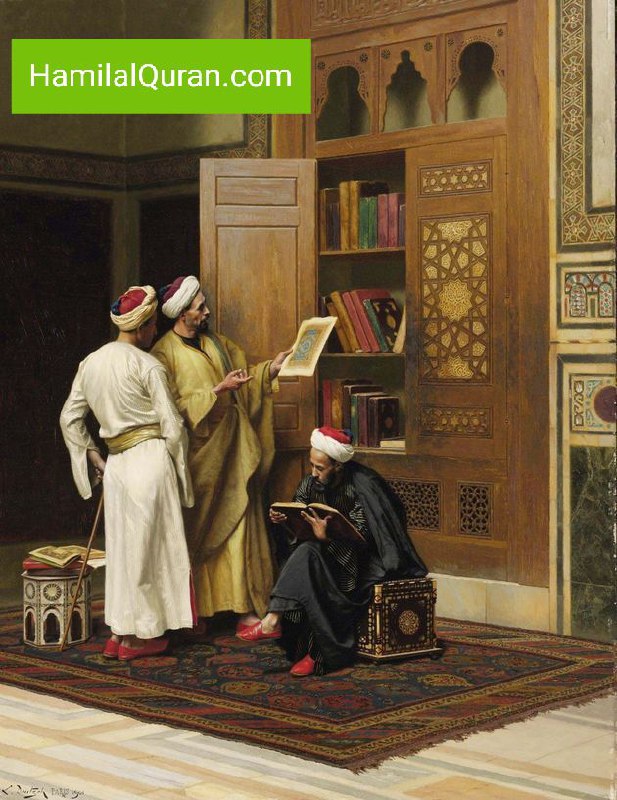There are many resources available to help you learn Islam and its teachings.
The Quran which is the Book of Allah is the central religious text of Islam, and reading it can provide valuable insights into the faith. Thanks to Allah, The Quran is available in many languages online or at your local library or bookstore.
The Holy Quran is the first source of knowledge in Islam
Table of Contents
ToggleThe Qur’an or Koran, is the central religious text of Islam. The Quran is considered the word of God (Allah) as revealed to the Prophet Muhammad (PBUH) over a period of 23 years.
The Quran is written in Arabic and is composed of 114 chapters or surahs, each of which is made up of verses or Ayahs. The Quran is the first guidance for Muslims and provides them with the basic principles of Faith and morality. The Quran contains teachings on a wide range of topics, including the (Tawheed) oneness of god, the importance of prayer and charity, the role of prophets and messengers, the day of judgment, and the importance of social justice and compassion.
The Quran covers a wide range of themes and topics, the Quran is important as it’s a comprehensive guide for human life. Some of the major themes of the Quran include:
- The oneness of God (Tawheed): The Quran emphasizes the belief in one God (Allah) and rejects polytheism and idol worship.
- prophecy and divine guidance: The Quran recognizes the role of prophets and messengers in conveying Allah’s message to humanity and emphasizes the importance of following their guidance.
- The importance of good deeds and morality: The Quran emphasizes the importance of practicing good deeds and moral conduct, such as honesty, mercy, and justice.
- The Day of Judgment and Accountability: The Quran emphasizes the belief in the afterlife and the concept of accountability for one’s actions and beliefs.
- Social justice and mercy: The Quran emphasizes the importance of social justice, encouraging Muslims to care for the poor, the needy, and the oppressed.
- The importance of knowledge and reading: The Quran emphasizes the importance of knowledge and wisdom, encouraging Muslims to seek knowledge and use their intellect to understand Allah’s message and creation.

Learn Islam through Islamic history
Islamic history is a rich and diverse field that spans over 14 centuries and encompasses a wide range of political, social, cultural, and intellectual outstanding developments.
The history of Islam begins with the life of the Prophet Muhammad (PBUH), who was born in Mecca and began receiving revelations from Allah subhanahu wa ta’ala at the age of 40.
The history of Islam begins with the life of the Prophet Muhammad (PBUH), who was born in Mecca and began receiving revelations from Allah subhanahu wa ta’ala at the age of 40. Muhammad’s teachings emphasized the oneness of God and the importance of social justice and compassion, spread rapidly throughout the Arabian Peninsula and beyond, and within a few decades of his death, Islam spread throughout the Middle East, North Africa, and parts of Europe and Asia.
Islamic civilization grew over the centuries, with intellectuals, artists, and scientists making important contributions to fields such as mathematics, astronomy, medicine, and literature.

Islamic empires, such as the Abbasid Caliphate, the Ottoman Empire, and the Mughal Empire, exerted significant influence on world history. Islamic history is characterized by a rich diversity of cultures, languages, and traditions, reflecting the vast geographical and cultural regions where Islam has spread and flourished. Islam’s history has been influenced by a wide range of political, social, and economic elements, and it has had its share of battles and struggles as well as times of peace and prosperity.
Today, the history of Islam continues to be an important field of study in schools and universities, with scholars and researchers exploring the rich legacy and contributions of Islamic civilization, as well as its ongoing relevance and impact on contemporary society.
Learn Islam through online courses
Nowadays, there are many online courses available that teach the basics of Islam, including its history, beliefs, and practices. These courses are often free or low-cost and can be accessed from anywhere in the world and at any time.
Hamil al Quran Academy offers affordable and convenient Learning. they offer online Islamic courses for ladies, children, and adults, making it easy for everyone who is seeking Islamic knowledge and convenient, allowing anyone to learn on his own time and at his own pace.
Seek out reputable sources to attain proper knowledge: When learning about Islam religion, it’s very important to seek out reputable sources that are accurate and unbiased. Look for books, articles, and websites written by scholars or experts in Islamic studies.

Learn more about Islam through Islamic scholars
If you have specific questions or concerns about Islam, you should Consult with an Islamic scholar. Islamic scholars or an imam at a local mosque or Islamic center provide guidance and answers based on the teachings of Islam.
Conclusion
The virtues of knowledge are mentioned in The Holy Quran and Sunnah and knowledge must be learned and taught for the sake of Allah subhanahu wa ta’ala.
Abu Hurairah (May Allah be pleased with him) reported:
The Messenger of Allah (PBUH)said,
“Allah makes the way to Jannah easy for him who treads the path in search of knowledge.”
[Muslim]
learning about Islam requires an open mind and a willingness to explore new ideas and perspectives and also submission to Allah’s wisdom. By studying its teachings, history, and culture, you can gain a deeper understanding of this rich and strong faith.
